This blog may contain affiliate links, meaning I earn a small commission if you make a purchase through these links, at no additional cost to you. As an affiliate, I only promote products and services I trust and believe will add value to my readers.
Building muscle isn’t just about lifting heavy weights; it’s about fueling your body with the right nutrients, especially protein. If you’ve ever wondered how much protein you need to maximize muscle growth, you’re not alone. Let’s dive into the science, practical tips, and some highly rated protein products to support your fitness goals.
Why Is Protein Important for Muscle Building?
Protein is the building block of muscle tissue. When you engage in strength training, your muscles experience micro-tears. Protein provides the amino acids needed to repair and rebuild these fibers, making them bigger and stronger over time.
Without sufficient protein, your muscle recovery will be slower, and you’ll struggle to see the results of your hard work in the gym. Simply put, protein is non-negotiable if you’re serious about gaining muscle.
How Much Protein Do You Need?
The amount of protein you need depends on several factors, including your age, weight, activity level, and fitness goals. Here are general guidelines for muscle building:
- General Recommendation: 0.7 to 1.0 grams of protein per pound of body weight per day. For example, a 150-pound person should aim for 105 to 150 grams of protein daily.
- Athletes and Bodybuilders: Those with intense training routines may need up to 1.2 grams of protein per pound of body weight daily.
- Timing Matters: Distribute your protein intake throughout the day to maximize muscle protein synthesis.
Example Daily Protein Goals:
- 140 pounds: 98 to 140 grams
- 180 pounds: 126 to 180 grams
- 220 pounds: 154 to 220 grams
If you’re unsure about your exact needs, start with 0.8 grams per pound and adjust based on your results and how your body feels.
What Are the Best Sources of Protein?
Whole Food Sources
Whole foods should form the foundation of your diet. Some of the best sources of high-quality protein include:
- Chicken breast: A lean and versatile option
- Eggs: Packed with protein and healthy fats
- Greek yogurt: Great for breakfast or a post-workout snack
- Fish (salmon, tuna): Rich in omega-3 fatty acids
- Beef: Choose lean cuts to avoid excess fat
- Legumes (lentils, chickpeas): Perfect for plant-based diets
Protein Supplements
While whole foods are essential, protein supplements can help you hit your daily goals, especially when you’re busy or need extra calories. Below are some highly rated protein products on Amazon with great reviews and proven customer satisfaction.
Top-Rated Protein Supplements on Amazon
1. Optimum Nutrition Gold Standard 100% Whey Protein
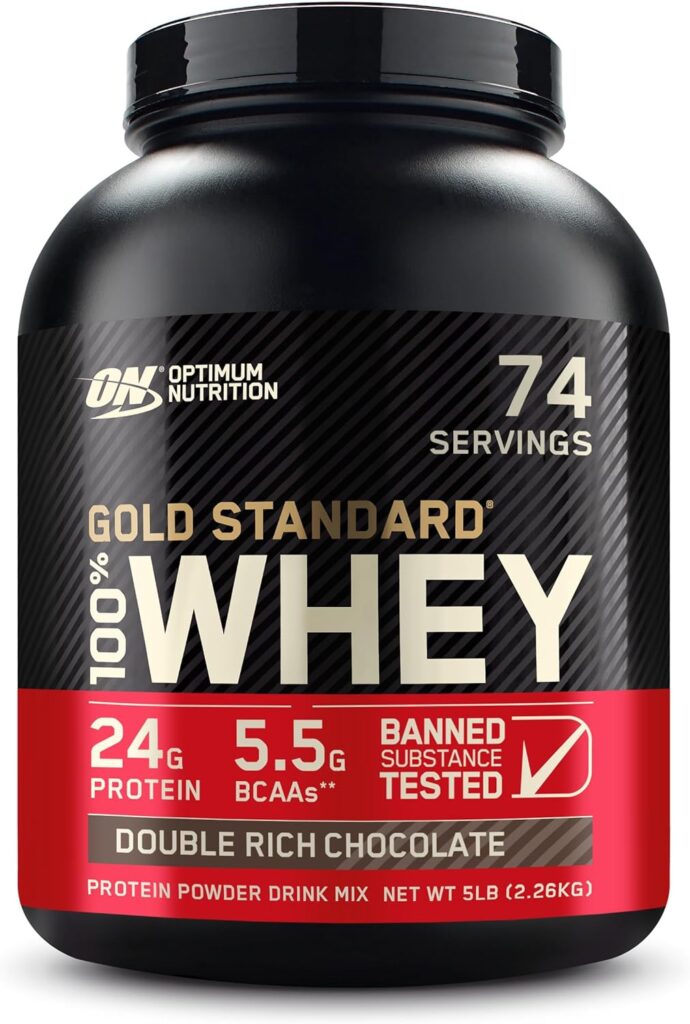
- Why It’s Great: With over 200,000 reviews and a 4.7-star rating, this whey protein is a customer favorite. It offers 24 grams of protein per serving and comes in multiple delicious flavors like Double Rich Chocolate and Vanilla Ice Cream.
- Key Features:
- Fast-digesting whey isolate
- 5.5 grams of naturally occurring BCAAs
- Low fat and sugar
- Perfect For: Post-workout recovery
2. Dymatize ISO100 Hydrolyzed Protein Powder
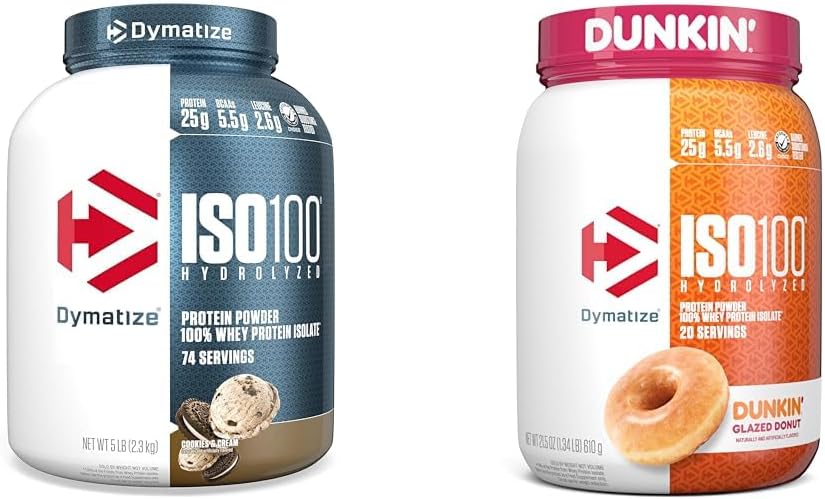
- Why It’s Great: This product is ideal for those who need a super-clean protein. It’s hydrolyzed, meaning it’s quickly absorbed, and it has zero fat and only 1 gram of sugar per serving.
- Key Features:
- 25 grams of protein per serving
- Gluten-free and lactose-free
- Great for muscle recovery
- Perfect For: Those with sensitive stomachs or strict dietary needs
3. Orgain Organic Plant-Based Protein Powder
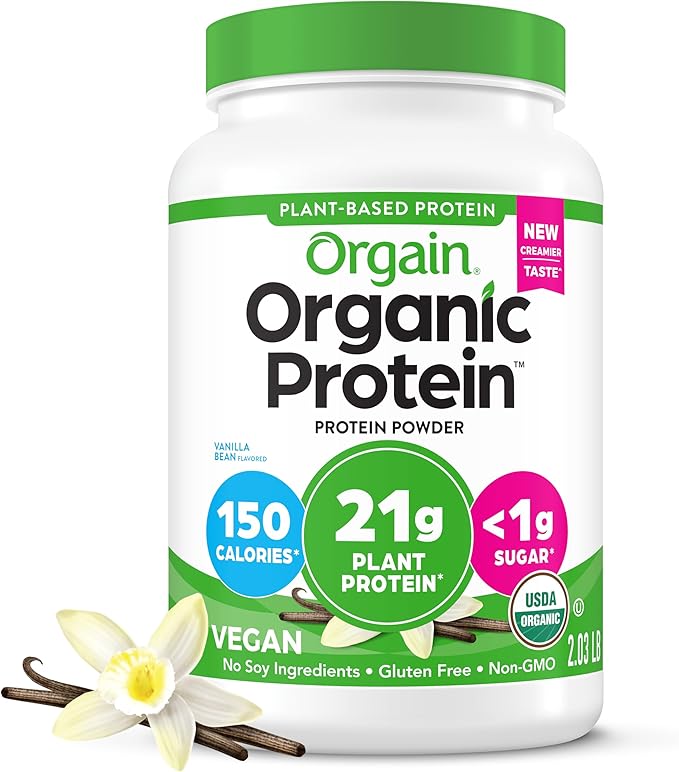
- Why It’s Great: This plant-based protein powder is perfect for vegans or those avoiding dairy. It’s made with clean, organic ingredients and has over 50,000 reviews.
- Key Features:
- 21 grams of protein per serving
- Includes fiber for better digestion
- No artificial sweeteners or fillers
- Perfect For: Vegans or anyone looking for a natural protein option
4. BSN Syntha-6 Ultra-Premium Protein Matrix
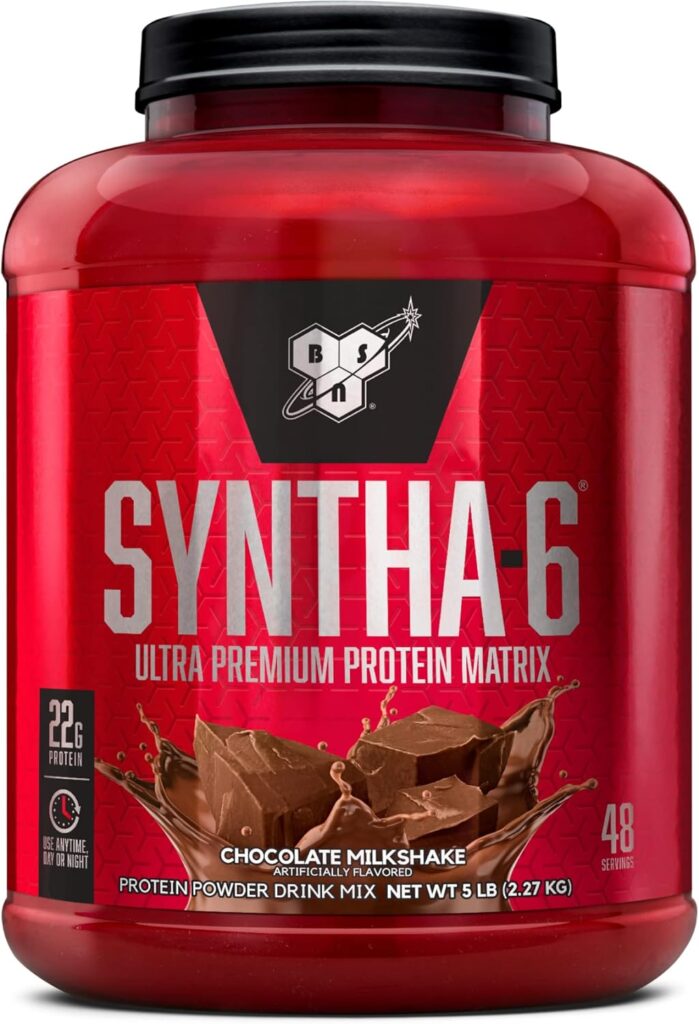
- Why It’s Great: Known for its creamy texture and dessert-like flavors, this protein is a treat without compromising on nutrition. It combines multiple protein sources for sustained release.
- Key Features:
- 22 grams of protein per serving
- Blend of fast- and slow-digesting proteins
- Delicious flavors like Cookies & Cream
- Perfect For: A protein-rich snack or meal replacement
5. MuscleTech NitroTech Whey Protein Isolate
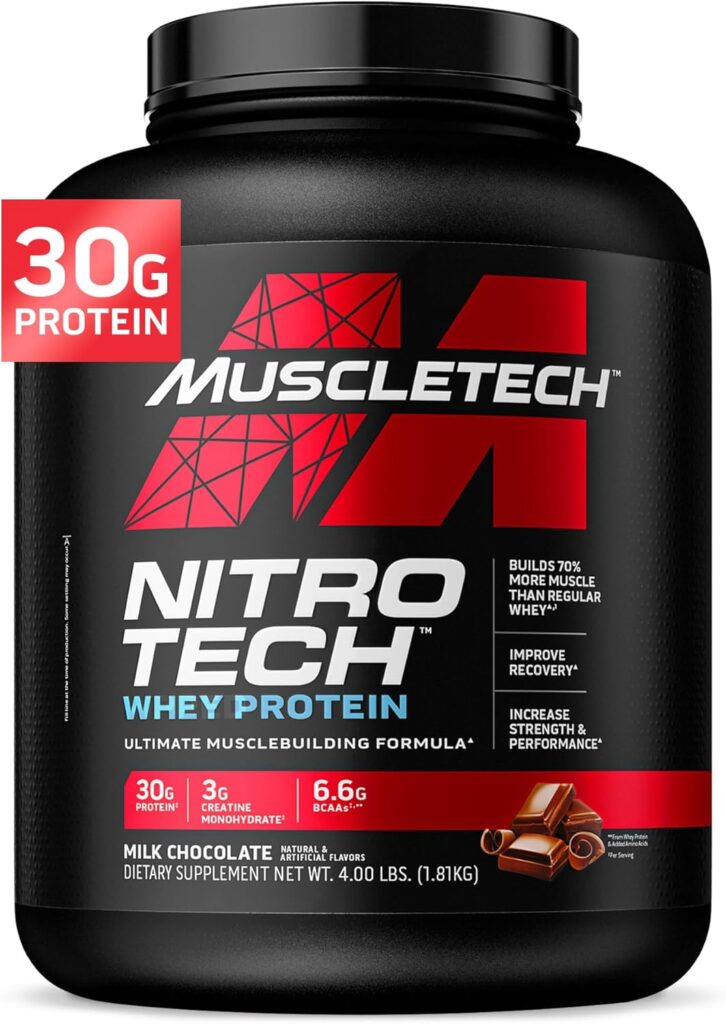
- Why It’s Great: This advanced protein powder includes added creatine for enhanced muscle growth and strength. It’s an all-in-one solution for serious athletes.
- Key Features:
- 30 grams of protein per serving
- 3 grams of creatine
- Scientifically backed for muscle building
- Perfect For: Advanced athletes looking to optimize gains
When Should You Take Protein?
To maximize muscle growth, timing your protein intake is crucial. Here’s a simple breakdown:
- Morning: Kickstart your day with a protein-rich meal or shake. This helps prevent muscle breakdown after a night of fasting.
- Pre-Workout: Consuming 20-30 grams of protein before your workout can enhance muscle synthesis.
- Post-Workout: A high-quality protein shake immediately after exercise is vital for recovery and growth.
- Before Bed: A slow-digesting protein like casein can provide a steady supply of amino acids overnight.
Practical Tips for Meeting Your Protein Goals
- Plan Ahead: Prep meals in advance to ensure you hit your protein target.
- Combine Sources: Mix plant-based and animal-based proteins for a well-rounded amino acid profile.
- Use Supplements Wisely: Protein powders are a supplement, not a replacement for whole foods. Use them to fill gaps in your diet.
- Track Your Intake: Apps like MyFitnessPal can help you monitor your daily protein consumption.
Common Myths About Protein and Muscle Building
Myth 1: Eating Too Much Protein Is Dangerous
While excessive protein can strain your kidneys if you have pre-existing issues, most healthy individuals can safely consume high amounts within recommended ranges.
Myth 2: You Need Protein Immediately After a Workout
While the post-workout window is important, it’s not a race. Your muscles remain primed for protein synthesis for several hours after exercise.
Myth 3: Protein Supplements Are Only for Bodybuilders
Protein supplements are useful for anyone looking to maintain or build muscle, including recreational athletes and busy professionals.